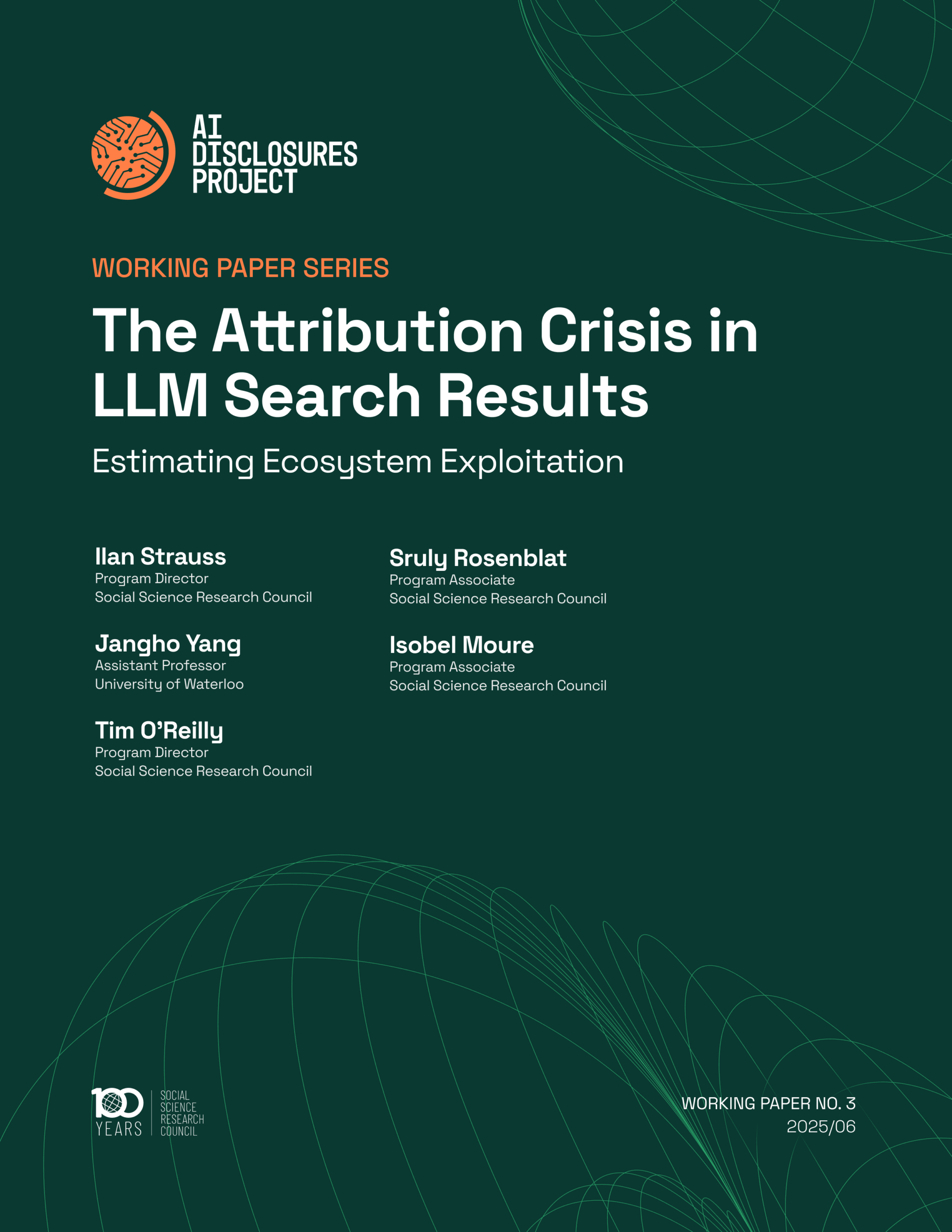Description
Web-enabled LLMs frequently answer queries without crediting the web pages they consume, creating an “attribution gap” – the difference between relevant URLs read and those actually cited. Drawing on approximately 14,000 real-world LMArena conversation logs with search-enabled LLM systems, we document three exploitation patterns: 1) No Search: 34% of Google Gemini and 24% of OpenAI GPT-4o responses are generated without explicitly fetching any online content; 2) No citation: Gemini provides no clickable citation source in 92% of answers; 3) High-volume, low-credit: Perplexity’s Sonar visits approximately 10 relevant pages per query but cites only three to four. A negative binomial hurdle model shows that the average query answered by Gemini or Sonar leaves about 3 relevant websites uncited, whereas GPT-4o’s tiny uncited gap is best explained by its selective log disclosures rather than by better attribution. Citation efficiency – extra citations provided per additional relevant web page visited – varies widely across models, from 0.19 to 0.45 on identical queries, underscoring that retrieval design, not technical limits, shapes ecosystem impact. We recommend a transparent LLM search architecture based on standardized telemetry and full disclosure of search traces and citation logs.
Citation
Ilan Strauss, Jangho Yang, Tim O’Reilly, Sruly Rosenblat and Isobel Moure. “The Attribution Crisis in LLM Search Results: Estimating Ecosystem Exploitation” SSRC AI Disclosures Project Working Paper Series (SSRC AI WP 2025-06), Social Science Research Council, June 2025. https://www.ssrc.org/publications/the-attribution-crisis-in-llm-search-results/

